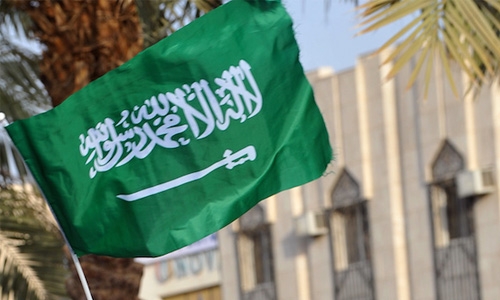Saudi Cabinet reshuffle, crackdown on corruption
Jeddah : Several princes, ministers and leading businessmen were either arrested or sacked in Saudi Arabia on Saturday following a series of Royal Orders stipulating a reshuffle in the Cabinet and the formation of a supreme anti-corruption committee.
According to the official Saudi Press Agency (SPA), the committee is chaired by the Crown Prince, Deputy Premier and Defence Minister HRH Prince Mohammed bin Salman bin Abdulaziz Al Saud and the membership of Chairman of the Monitoring and Investigation Commission, Chairman of the National Anti-Corruption Authority, Chief of the General Audit Bureau, Attorney General and Head of State Security.
The committee’s first decision was the arrest of 11 Saudi princes, four sitting ministers and ‘tens’ of former ministers and businessmen.
This includes prominent businessmen such as multibillionaires Prince Al Waleed bin Talal bin Abdulaziz Al Saud (net worth: USD18.7 billion) and Saleh Kamil (net worth: USD2.2 billion), as well as former Finance Minister Ibrahim Al Assaf
The changes in the Saudi Cabinet included ousting Naval Forces Commander Admiral Abdullah bin Sultan bin Mohammed Al Sultan, National Guard Minister Prince Miteb bin Abdullah bin Abdulaziz Al Saud and Economy and Planning Minister Adel Mohammed Faqih.
SPA reported on its official online, quoting King Salman announcing the formation of the committee saying, “In view of what we have noticed of exploitation by some of the weak souls who have put their own interests above the public interest, in order to, illicitly, accrue money and as we have taken care, in this regard, since we assumed the responsibility to follow these matters out of our pledges towards the homeland and the citizen.”
The committee is tasked “to identify offenses, crimes, persons and entities involved in cases of public corruption”.
The second duty of the committee is “the investigation, issuance of arrest warrants, travel ban, disclosure and freezing of accounts and portfolios, tracking of funds, assets and preventing their remittance or transfer by persons and entities, whatever they might be”.
SPA also reported that “the committee has the right to take any precautionary measures it sees, until they are referred to the investigating authorities or judicial bodies”, adding that “it may take whatever measures deemed necessary to deal with those involved in public corruption cases and take what it considers to be the right of persons, entities, funds, fixed and movable assets, at home and abroad, return funds to the state treasury and register property and assets in the name of state property”.
Related Posts

